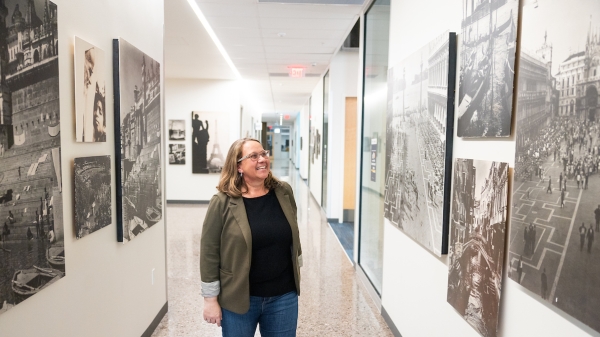Job insecurity can be bad for business, ASU research finds
Professor's study shows that disgruntled workers are more prone to 'deviant behavior'

Being insecure about whether you’ll keep your job isn’t a great feeling, and new research by an Arizona State University professor has found that it could be bad for your company, too.
Workers who felt job insecurity reported a higher likelihood of “deviant” behaviors, such as taking company property, in a study done by Ned Wellman, an assistant professor of management at the W. P. Carey School of Business at ASU.
“Traditionally, the perspective that people have taken is that when you’re insecure about your job, you’re less likely to do good things that help your company — to go above and beyond,” Wellman said of previous studies on the topic.
“In this paper, we were interested in the idea that not only are you less likely to do good things, but could it also increase the likelihood that you’re going to do things that are actively bad that otherwise you would not do?”
The key is “moral disengagement,” a psychological theory that explains why people do bad things.
“Typically, we have a moral regulatory system that, when we think about doing something bad, kicks in and makes us feel guilty, and we have negative feelings and thoughts,” Wellman said. “Those thoughts are enough to prevent us from going through with whatever we’re contemplating doing.”
But that process can be shut off in certain situations.
“Things can happen to make us view actions that we normally view as wrong and bad as OK and acceptable,” he said.
Workers’ feeling of job insecurity could cause moral disengagement, allowing them to blame others and do things they normally wouldn’t.
“If you feel insecure about your job, you’re more likely to view people who you might be harming with your deviant behavior as deserving because they somehow violated their agreement with you,” said Wellman, whose paperThe paper is titled “Deviance and Exit: The Organizational Costs of Job Insecurity and Moral Disengagement.” was published recently in the Journal of Applied Psychology.
The “moral disengagement” effect was heightened when workers perceived themselves as having more and better employment options elsewhere. “Then you’re more likely to be offended and more likely to be deviant,” he said.
Wellman’s area of expertise is leadership. In this study, the researchersWellman’s co-authors are Guo-hua Huang of Hong Kong Baptist University, Susan J. Ashford of the University of Michigan, Cynthia Lee of Northeastern University and Li Wang of Tongji University. found that a good dynamic between a leader and a worker can lessen the likelihood of moral disengagement.
“If you feel you have a strong relationship with your immediate supervisor, and you feel like that person treats you well and gives you responsibility, that makes the process less likely to occur,” he said. “It’s hard for them to say, ‘Everyone in this organization is out to get me.’ ”
The team used surveys over several months on more than 600 workers at a Chinese manufacturer.
“We didn’t see a ton of deviant behavior. It’s not like everyone who is insecure with the job runs around and does bad things,” he said. “But the rate is elevated.”
The questionnaires asked about interpersonal deviance — bullying, threatening, spreading rumors or sabotaging others’ work — and behavior directed toward the company, such as taking supplies or misusing an expense account, and how frequently people engaged in each behavior, on a scale of 1, never, to 5, very frequently.
“Most of our responses were in the 2 to 3 range. It’s not never, but it’s not super frequent,” Wellman said.
The issues of workers feeling insecure about their jobs is relevant with the changing economy, he said.
“When we started this, 2008 was fresh in our minds,” he said.
“It’s no longer that you join an organization and are able to assume that 20 years from now you’ll be working at the same organization. The nature of work has changed, and work has become more temporary,” he said.
“People are encouraged to see themselves as free agents, so you’re not tied to a particular company.”
Wellman said that ensuring job security for all workers is unrealistic, but companies still can take action.
“Coaching supervisors and managers about how to develop strong and supportive relationships is important,” he said.
“Another more negative takeaway is that if you have someone who is very job insecure and you know they’re in high demand, that’s someone you want to keep a close eye on because that’s someone who is at highest risk.”
More Business and entrepreneurship

Thunderbird archives: These walls do talk
Editor’s note: This is part of a monthly series spotlighting special collections from ASU Library’s archives throughout 2024. At most universities, if you want to learn about their history, you must…

California roots, global impact: Thunderbird at ASU grad's journey in global management
Editor’s note: This story is part of a series of profiles of notable spring 2024 graduates. Lake Forest, California, native Kyle Kay was attracted to Thunderbird School of Global Management at…

ASU student entrepreneurs win cash investments for ventures at Demo Day
Several Arizona State University student entrepreneurs who won big cash investments for their ventures on Saturday expressed gratitude not only for the money but also the support they found in…